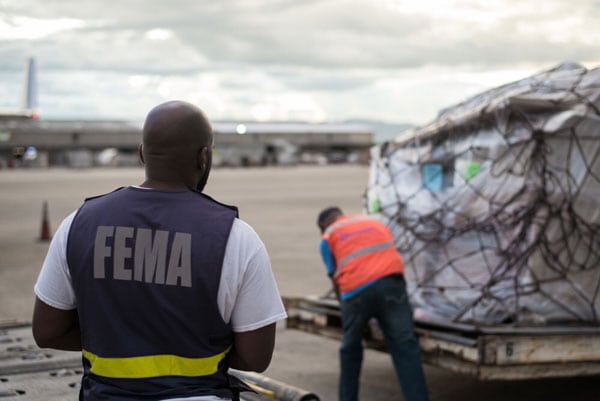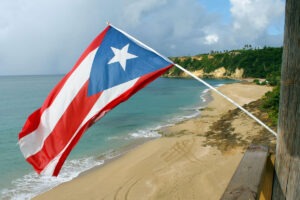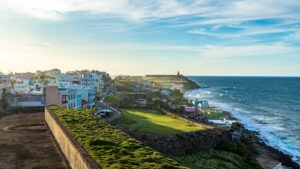
September 20, 2018; New York Times
Writing for the New York Times a year after Hurricane Maria hit Puerto Rico, Frances Robles and Jugal Patel write about Punta Santiago, a town of 5,000 people, as a window through which to assess the state of recovery efforts. (NPQ visited Punta Santiago last year and wrote about it.) Their report is based on visits to 163 homes in two neighborhoods.
In middle class neighborhoods, rebuilt rooms and new furniture can be seen, but poorer homes are still in disrepair. In Punta Santiago, the unemployment rate is 25 percent, and half earn less than $20,000 a year. Many homes still have “gutted kitchens and electrical wires running randomly along unfinished walls. Roofs were covered with plywood or plastic, many near collapse. Some houses still had no running water. A number of families lived in single rooms in unfurnished houses, sleeping on the floor.”
According to Robles and Patel, the Federal Emergency Management Agency (FEMA) has distributed more food and installed more generators in Puerto Rico than any other recovery effort. But, the federal government’s programs are often a poor match to Puerto Rico’s needs. For example, the small assistance grants FEMA provides to families hit by the storm can contribute to repairs, but hardly cover all costs. This can work if the family can add to the federal funds through insurance, savings, or credit. But, as Robles and Patel point out, “Up to a third of all Puerto Ricans do not have bank accounts. Only 15 percent of those who applied for FEMA help had homeowner’s insurance, and 3 percent had flood insurance.”
Robles and Patel note that of “1.1 million households who requested help from FEMA [after Hurricane Maria], about 58 percent were denied,” and more than three-quarters who appealed were denied again. Even for those whose applications were approved, the median grant given to repair homes was $1,800, compared with about $9,127 paid out to survivors of Hurricane Harvey in Texas, and only one-third of the grants exceeded $3,000. Overall, FEMA grants in Texas totaled twice as much as Puerto Rico’s, even though 51,000 fewer people in Texas received grants.
Sign up for our free newsletters
Subscribe to NPQ's newsletters to have our top stories delivered directly to your inbox.
By signing up, you agree to our privacy policy and terms of use, and to receive messages from NPQ and our partners.
Robles and Patel describe how this played out in Punta Santiago. They write, “Seven hundred and forty-six of the area’s 1,554 homes were so badly damaged they needed emergency repairs in order to be habitable. But only 512 families were eligible for cash grants for their damage. The median grant handed out was $1,812.” By contrast, a cheap replacement roof might cost $5,000—and a storm-worthy roof, $15,000. But FEMA only compensates for actual losses, not replacement value.
New programs being adopted may be more effective. For instance, FEMA has funded to the tune of $1.6 billion a Puerto Rico Department of Housing program called Tu Hogar Renace (Your Home Reborn), which provides far more adequate funding per home, but to date only a little over 80,000 homeowners have received assistance through this program. More broadly, an $18.5-billion US Department of Housing and Urban Development (HUD) allocation will help, although federal rules may impede effectiveness. For instance, HUD grants are limited to those earning 120 percent of median income or below. While this may seem reasonable, in a community like Punta Santiago with a median income just over $20,000, that means a family earning $25,000 a year is ineligible for assistance.
On top of that are housing title complications. In Puerto Rico, FEMA has denied aid to those who can’t provide clear title. Some groups, like the Puerto Rico Builders Association, “suggest that about 55 percent of the island’s infrastructure—more than half—was informally built, including 700,000 houses and commercial buildings,” according to an NBC News account.
As NPQ’s Cyndi Suarez noted last May, these title problems didn’t just happen; they stem from a colonial economy where people had to improvise to “make things work, including building houses without permits.” True recovery, Suarez notes, “will have to address the lived realities that have resulted from over 100 years of subordination to the US, a local government that has often served US business interests, and economic policies that have led to large-scale poverty.”—Steve Dubb













